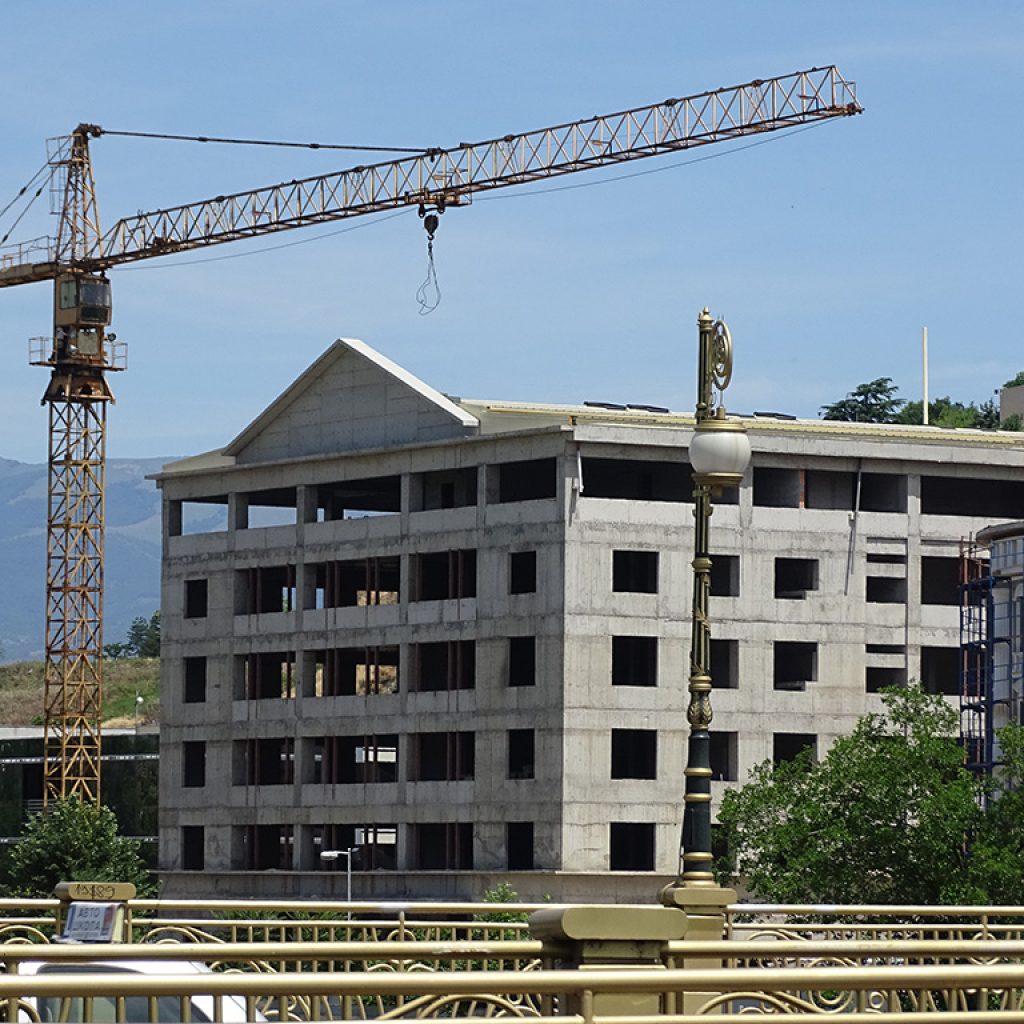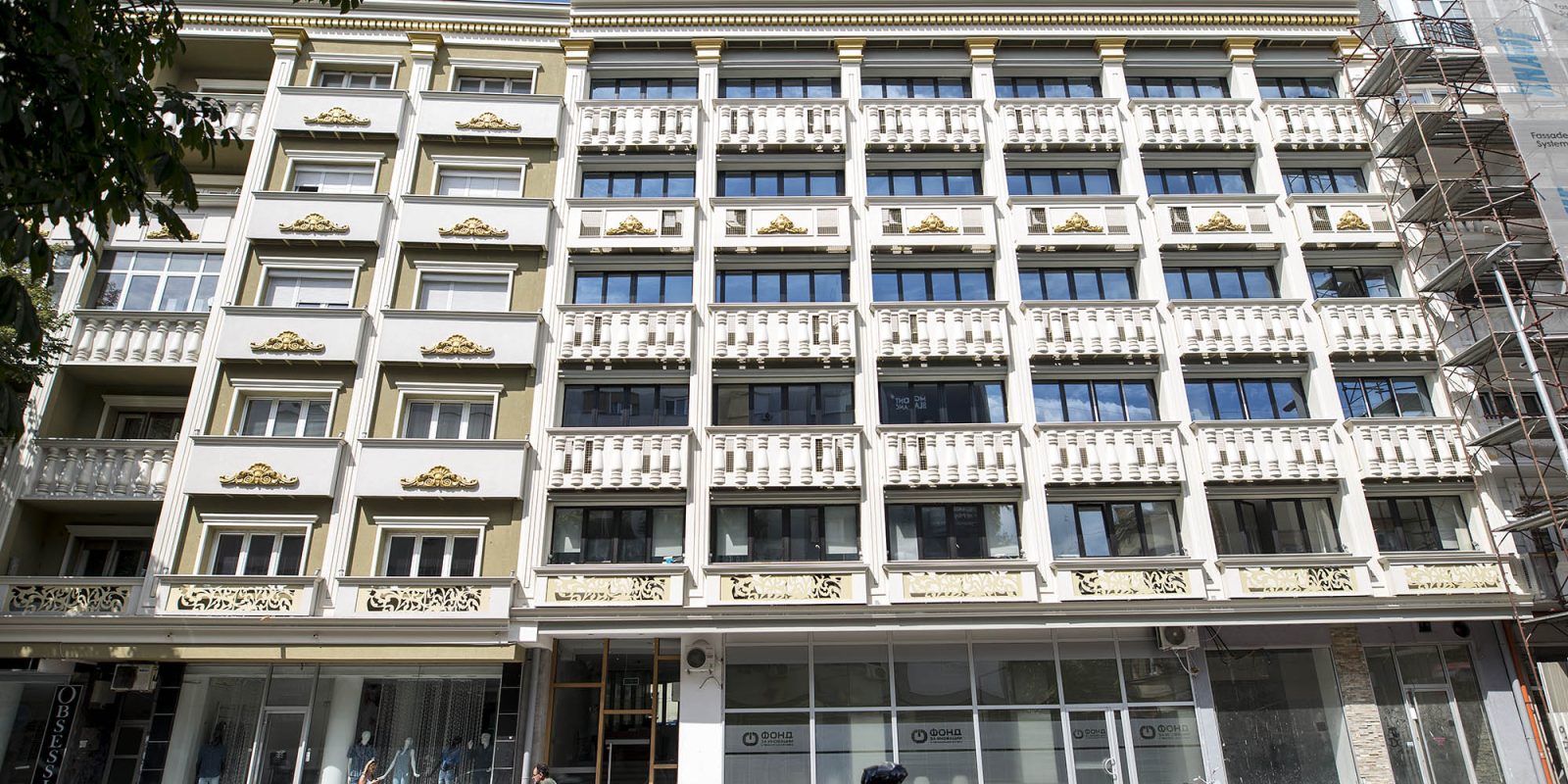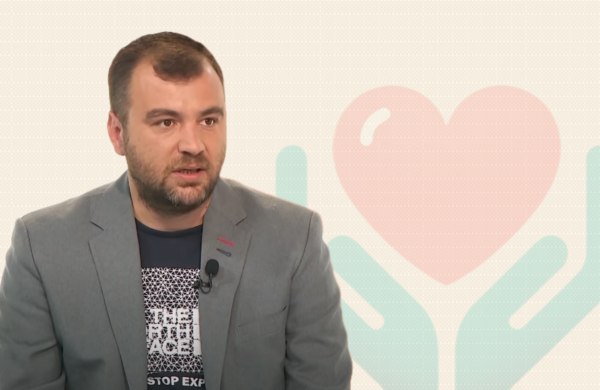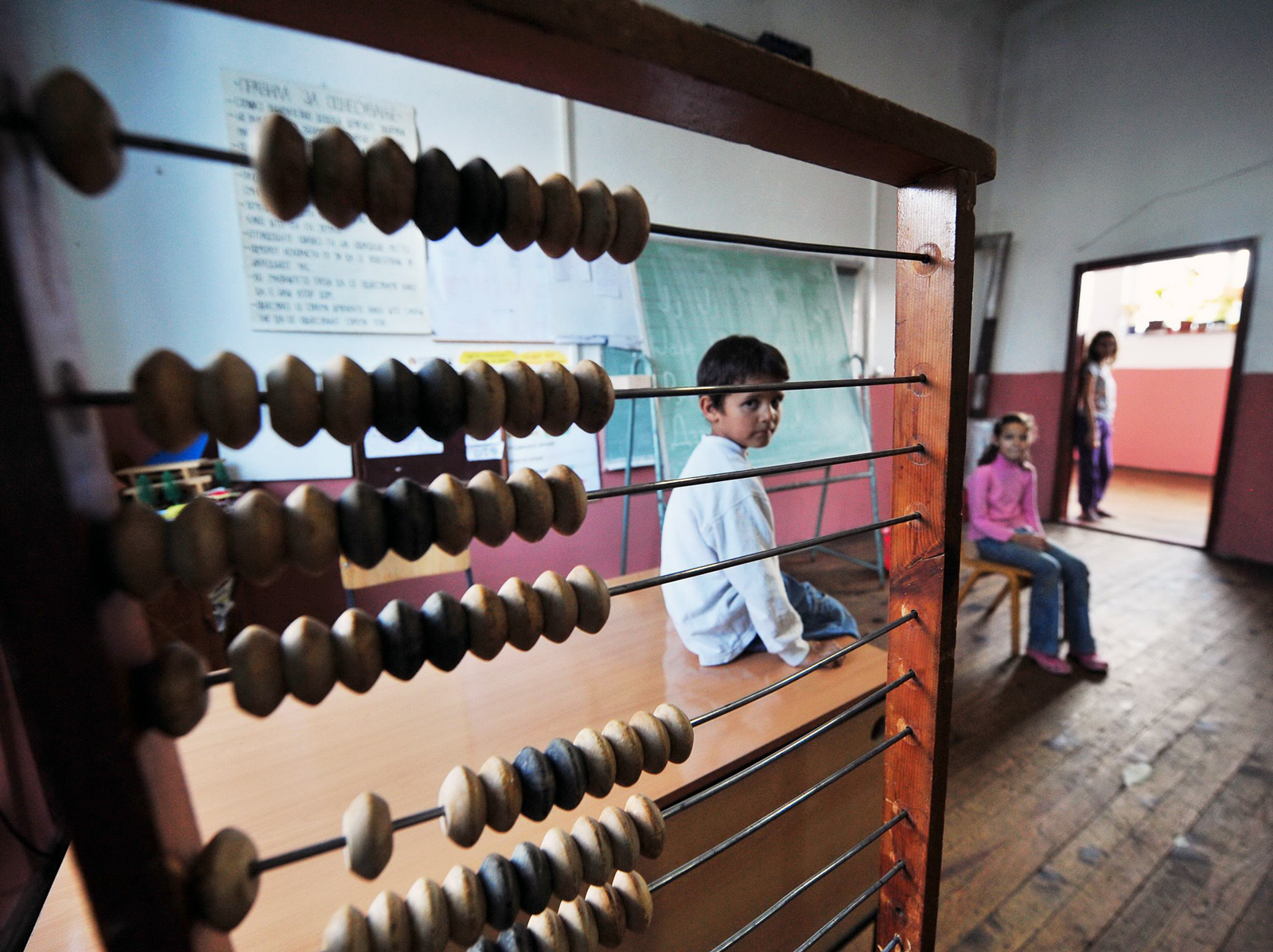In 2015, all municipalities and the City of Skopje have spent 126 million EUR on public procurements. Half of these funds, i.e. 63.3 million EUR were disbursed under tender procedures to 34 companies, while the remaining half is shared by as many as 1,323 companies. The dominant position of small number of companies on the market of public procurement was unveiled by the database on public procurements of municipalities, which covers all contacts signed by 80 municipalities and the City of Skopje in 2015.
This database provides an overview of tender procedures per municipality and shows that in as many as 60 municipalities one company has been awarded from 25% upwards of the total value of tender procedures. Classic domination of one company, with share higher than 50%, was observed in some municipalities. This situation could be justified in cases of municipalities with very small number of tender procedures, but is most certainly indicative of public procurement distortions in the case of bigger municipalities.
Database developed by the Center for Civil Communications provides detailed overview of all unsettled liabilities per individual institution, in the period December 2011 – June 2016.
The biggest debtor among state hospitals and clinics is the Institute for Transfusion Medicine, with matured debt in the amount of 275.8 million MKD (4.5 million EUR) that accounts for 8.8% of total debt recorded in June.
Public health care institutions with biggest debts
City of Skopje has spent as much as 51 municipalities together
At the top of the list according to the amount of funds spent on public procurements and unchallenged by others is the City of Skopje, which in 2015 has signed contracts in the value of 26 million EUR, i.e. representing an increase by 86% compared to 2014. Skopje has spent five and a half times more funds that the second-ranked Strumica, i.e. six and a half times more funds that Bitola, standing on the third position. Major differences in funds spent on public procurements are confirmed by the fact that as many as 45 municipalities have spent less than 1 million EUR each on public procurements. Hence, it does not come as surprise that Skopje, whose public procurements account for 26 million EUR, has spent as much as 51 municipalities together.
When the City of Skopje, as separate local government unit, is excluded from this comparison, the conclusion is inferred that municipalities have spent between 4.6 million EUR (Strumica) and 68 thousand EUR (Zelenikovo). Such great range in terms of annual spending on public procurements is indicative of major differences in funds disposed by municipalities to perform their competences in the interest of citizens (construction of local streets, utility infrastructure, local lighting, urban equipment, etc.).
The list of ten municipalities that have spent the most on public procurements include Strumica (4.6 million EUR), Bitola (4 million EUR), Gostivar (3.9 million EUR), Gazi Baba (3.7 million EUR), Veles (3.3 million EUR), Karpos (3.1 million EUR), Ilinden (3.1 million EUR), Tetovo (2.9 million EUR), Kisela Voda (2.8 million EUR) and Kumanovo (2.7 million EUR).
Comparison of municipalities ranked at the top and at the bottom of the list shows major differences in funds spent on public procurements. In that, 35 municipalities had the opportunity to spend from 1 to 4.6 million EUR on public procurements, while some of those at the bottom have not even had 100 thousand EUR for the entire year. This situation raises concerns, because it poses the question of what could be done with such small amount of funds to improve living conditions for citizens in said municipalities. At the bottom of the list, according to the value of public procurements in 2015, are Zelenikovo – with only 68 thousand EUR, Suto Orizari – with 74 thousand EUR, Rankovce – with 75 thousand EUR, and Konce – with 98 thousand EUR.
Suto Orizari spent 3 EUR per capita, while Debarca – 387 EUR per capita
Having in mind that it is only logical for bigger municipalities to have bigger budgets in absolute amounts and therefore spend more on public procurements, comparison of per capita value of public procurements is very relevant to investigate differences at local level.
Comparison of 80 municipalities according to per capita value of public procurements shows major differences among citizens in Macedonia. At the top is Municipality of Debarca, which in 2015 has spent 1.5 million EUR by means of tenders, i.e. 387 EUR per capita. High per capita value of public procurements in the amount of more than 150 EUR was recorded also in Makedonska Kamenica (277 EUR), Karbinci (205 EUR), Ilinden (186 EUR), Makedonski Brod (179 EUR), Demir Kapija (176 EUR) and Novaci (156 EUR).
Moreover, only 15 municipalities have spent more than 100 EUR per capita on public procurements. At the bottom of the list, with less than 15 EUR per capita, are Zelenikovo (14 EUR), Kratovo (13 EUR), Tearce (9 EUR), Vrapciste (9 EUR), and Suto Orizari (3 EUR).
Top 10 list according to awarded funds is dominated by construction companies

The new “City House” in Skopje is constructed by Beton, the third-ranked company on the list with highest amount of funds from tender procedures. / Photo credit: BIRN
9 from the top 10 companies with highest amount of tender-awarded funds work in the construction business. Majority of them are ranked this high due to large-scale contracts signed with the City of Skopje. Top 10 companies have been awarded tenders in total value of 36.8 million EUR, accounting for 29% of municipalities’ total public procurement costs in 2015.
At the top is BAUER BG from Skopje, which in the course of 2015 has signed 25 public procurement contracts with municipalities, in total value of 6.5 million EUR. Main client of this company is the City of Skopje, with whom it has signed 6 contracts, but their value accounts for 66.6% of total income from tenders earned by BAUER BG analysed at the level of municipalities. It is a matter of contacts for reconstruction and expansion of streets, reconstruction of residential building facades, etc. As shown on infographic below, based on the database that enabled overview of public procurements per company, BAUER BG has signed public procurement contracts with Skopje-based municipalities Kisela Voda (10.3%), Cair (6.7%) and Gazi Baba (5%). Contracts signed with other municipalities are smaller in amount and their respective shares are below 5%.
Second on the list of companies with highest value of tender procedures at the level of municipalities is PELAGONIJA Gostivar. This company has signed 23 tender contracts in total value of 5.5 million EUR, mainly with the City of Skopje, whose contracts account for 60.5% of the company’s total value. Next, with share of 11.7% in the total value, are contracts signed with Municipality of Gostivar, while the share of other seven municipalities are in the range from 0.7% to 7%.
BETON Skopje has signed only 5 public procurement contracts with local governments, but their value (4.1 million EUR) elevated this company to the third position. In that, four contracts were signed with the City of Skopje and one with Municipality of Ilinden. Two of the contracts with the City of Skopje were actually annex contracts concerning works on building “City House” and multilevel parking facility “Dame Gruev”, while the other two concerned maintenance of fountains and monuments, and street lighting along sections of Dimitar Vlahov Street.
Fourth position is reserved for another construction company, i.e. URBAN INVEST Grkov Jovan Kavadarci. This company has signed 41 contracts in total value of 3.8 million EUR, but half of this value (55.9%) falls on contracts signed with the City of Skopje. This company has contracts with Municipality of Bitola that account for 10.7% of total funds, while contracts signed other 6 municipalities account for less than 10% each.
Top 5 positions are completed with construction company ZIKOL from Struimica, which has signed 34 contracts with municipalities in the value of 3.7 million EUR. In the case of this company as well, the City of Skopje appears as the biggest client in terms of contract value, but with significantly lower share compared to other companies, accounting for 20.1%. ZIKOL has signed contracts with Municipality of Radovis in value share of 15.4%, Bogovinje – 10.3%, and 15 other municipalities, each with value share of less than 10%.
Top 10 companies with highest value in terms of public procurement contracts signed with municipalities includes four more construction companies, those being: Factory Karpos Skopje (3.4 million EUR), Vardargradba Skopje (2.1 million EUR), LSG Building Solutions Skopje (1.9 million EUR) and KOLE-TRANS ENGINEERING Stip, in the value of around 2.6 million EUR, almost half of which (47.3%) are signed with Municipality of Stip.
The list of top 10 companies includes only one economic operator outside the construction business – company for distribution of oil derivatives PUCKO PETROL Plasnica. As shown in the database, this company has signed 32 public procurement contracts with more than 20 municipalities, in total value of 3 million EUR.
In value terms, the company with the highest number of public procurement contracts signed in 2015 with municipalities is GEING Krebs und Kiefer International and others Skopje (60 in total) holds the low 59th position. More specifically, although the number of tender procedures signed with more than 20 municipalities is high, their total value amounts to only 470 thousand EUR.
Database on public procurements organized by municipalities in the Republic of Macedonia for 2015 imposes the need for improvements to the system of public procurements aimed at preventing domination of particular companies, as well as aimed at re-examination of the manner in which earmarked grants are awarded from central to local government for the purpose of reducing disparities among municipalities and ensuring conditions for more equitable development at local level.







